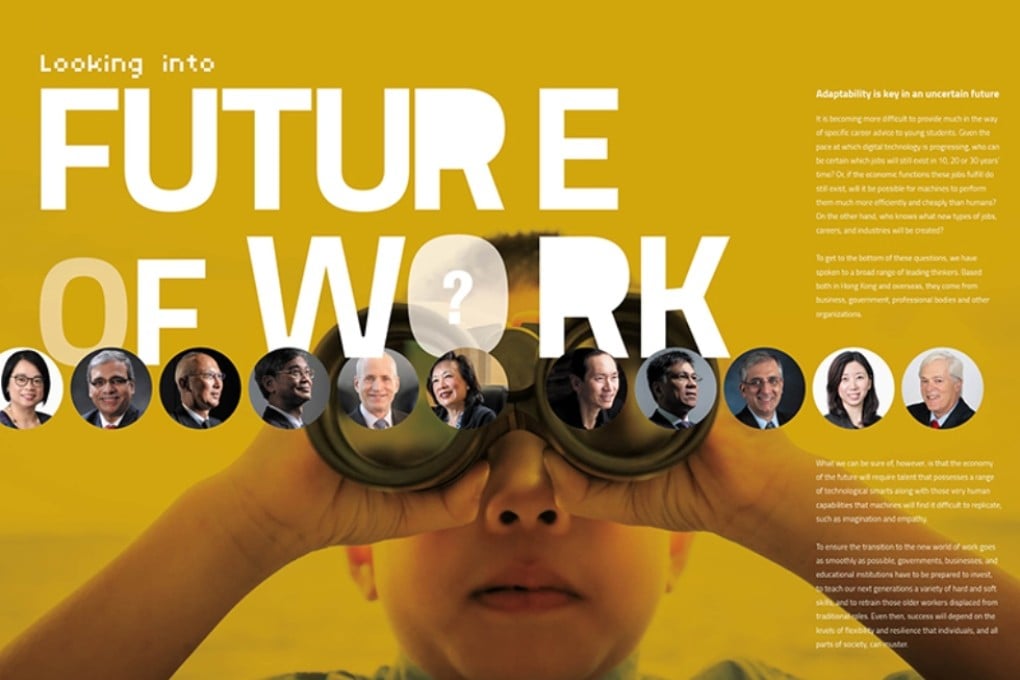Looking into Future of Work

[Sponsored Article]
It is becoming more difficult to provide much in the way of specific career advice to young students. Given the pace at which digital technology is progressing, who can be certain which jobs will still exist in 10, 20 or 30 years’ time? Or, if the economic functions these jobs fulfill do still exist, will it be possible for machines to perform them much more efficiently and cheaply than humans? On the other hand, who knows what new types of jobs, careers, and industries will be created?
To get to the bottom of these questions, we have spoken to a broad range of leading thinkers. Based both in Hong Kong and overseas, they come from business, government, professional bodies and other organizations.
What we can be sure of, however, is that the economy of the future will require talent that possesses a range of technological smarts along with those very human capabilities that machines will find it difficult to replicate, such as imagination and empathy.
To ensure the transition to the new world of work goes as smoothly as possible, governments, businesses, and educational institutions have to be prepared to invest, to teach our next generations a variety of hard and soft skills, and to retrain those older workers displaced from traditional roles. Even then, success will depend on the levels of flexibility and resilience that individuals, and all parts of society, can muster.